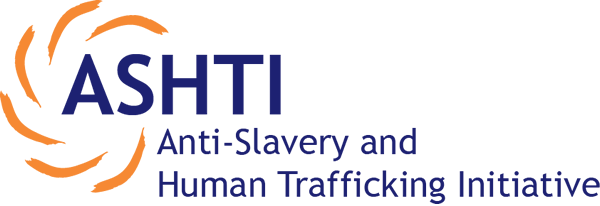The ASHTI Prevention Strategies Model
Kansas City Research Site
ASHTI Publications
In the News
Faculty Research
 | Nazli Avdan Dr. Avdan is Assistant Professor of Political Science at The University of Kansas. She teaches courses in U.S. Foreign Policy, terrorism, and graduate seminars on international relations theories and interstate conflict. Her research interests include migration, organized crime, transnational terrorism, and empirical approaches to world politics. She received her Ph.D. from Duke University in 2010 and most recently was a Junior Research Fellow at University College, Oxford. She joined the Political Science Department in Fall 2013. |
Abstract:Why do some militant organizations participate in human trafficking? We investigate this question by introducing a new dataset that records insurgent organizations’ involvement in four types of human trafficking: sexual exploitation, forced recruitment, slavery, and kidnapping. Marrying our data to the BAAD2I population of insurgent organizations, we uncover the organizational attributes related to human trafficking. We find that groups with wide alliance networks and territorial control are more likely to commit human trafficking. Organizations that are losing command of the territory and suffering rank-and-file losses are also more likely to turn to human trafficking. Our study sheds theoretical light on insurgent groups’ involvement in crime. It also contributes to the empirical scholarship on sexual violence by violent groups by studying different forms of human trafficking in both conflict and non-conflict environments. Our paper presents an original dataset and empirical analysis of insurgent groups’ human trafficking patterns.
Article: “Human Trafficking and Migration Control Policy: Vicious or Virtuous Cycle” 2012. Journal of Public Policy 32(2): 1-35.
Abstract: This paper examines the relationship between states’ migration control policies and human trafficking in origin, transit and destination states. Using cross-sectional data on states’ visa policies for 192 states and indicators for human trafficking from the Global Patterns report by the United Nations Office on Drugs and Crime, the paper analyses feedback mechanisms between policies and trafficking. The empirical evidence suggests that, contrary to the pessimistic predictions of policy scholarship, the feedback is characterised by a virtuous mechanism. Firstly, the results show that, in line with expectations of security studies, states tighten visa policies in response to trafficking threats. Origin and transit states face a greater number of restrictions on travel. Similarly, destination states of trafficking impose tighter controls. Secondly, visa restrictions against origin and transit countries mitigate trafficking from and through these states. Finally, the paper demonstrates that the vicious effect whereby stricter policies exacerbate trafficking pertains mostly to destination and to visas imposed at borders states’ visa policies.
 | Hannah Britton Hannah Britton is an Associate Professor of Political Science and Women, Gender, and Sexuality Studies at The University of Kansas. She is currently serving as the Director of the Center for the Study of Injustice at the Institute for Policy & Social Research at KU. Dr. Britton’s previous work has focused on women in African legislatures, civil society, and government bureaucracies. She is currently working on several new projects: state strategies for addressing gender-based violence in southern Africa and a comparative analysis of human trafficking policies. She recently published an article with Laura Dean on human trafficking policies in Southern Africa. Dr. Britton is also leading the Anti-Slavery and Human Trafficking Initiative at KU. |
Britton, Hannah E. and Dean, Laura A. ”Policy Responses to Human Trafficking in Southern Africa: Domesticating International Norms.” 2014. Human Rights Review 15(3):305-328.
Schwarz, Corinne and Hannah Britton. “Queering the Support for Trafficked Persons: LGBTQ Communities and Human Trafficking in the Heartland.” 2015. Social Inclusion 3(1): 63-75.
Schwarz, Corinne, Erik Unruh, Katie Cronin, Sarah Evans-Simpson, Hannah Britton, and Megha Ramaswamy. “Human Trafficking Identification and Service Provision in the Medical and Social Service Sectors.” 2016. Health and Human Rights Journal 18(1): 181-191.
 | Mariya Y. Omelicheva Dr. Omelicheva is an Associate Professor of Political Science and Director for the Center for Russian, East European & Eurasian Studies. Her research and teaching interests include international and Eurasian security, counterterrorism and human rights, democracy promotion in the post-Soviet territory, and Russia's foreign and security policy. Dr. Omelicheva currently serves as a primary investigator on a Minerva grant from the U.S. Department of Defense's Minerva Research Institute. |
The growing convergence between terrorism, organized crime, and human trafficking has been recognized in the academia and policy world. With the disruption of terrorist financing, many terrorist groups have turned to drug smuggling as a source of funding. Drug trafficking organizations have been diversifying their criminal activities into the lucrative and low risk crime of human trafficking and trade. Terrorist groups have also been implicated in human trafficking and kidnappings for ransom. Despite the many points of intersection between trafficking activities and terrorism, there is still a tendency to treat these forms of transnational crime as discrete, and examine them separately or as part of the overlapping trafficking routes. While a link between terrorism, organized crime, and human trafficking is suspected, the nature of such a nexus is not well understood.
The goal of this project is to examine the relationship between transnational crime and terrorism and the place of human trafficking in the crime/terrorism nexus. Specifically, the study compares the driving forces and dynamics of these criminal activities, identifies the conditions under which terrorist-criminal alliances are forged, and develops a typology of terrorist-criminal connections with human trafficking. The geographical domain of the study includes the post-Soviet states of Central Asia (Kazakhstan, Kyrgyzstan, Tajikistan, Turkmenistan, and Uzbekistan), South Caucasus (Armenia, Azerbaijan, and Georgia), and Russia. Struggling economies, corruption, unresolved conflicts, and weak law-enforcement characterizing these territories have allowed organized crime and terrorism flourish. Central Asia is one of the three major drug regions of the world that support insurgent movements and terrorism. It provides steady supply of narcotics from growers in Afghanistan to buyers in Russia and Europe. Illicit arm sales abound throughout the area, and locals are targeted as forced or cheap labor, or victims of sexual and physical abuse. Temporarily, the study spans the period from 1999 (a year that marked the beginning of Russia’s counterterrorism campaign and intensification of terrorist activities in South Caucasus and Central Asia) to present.
A new and important dimension that I will add to the project through the application of the Geographic Information Systems (GIS) capabilities will highlight the role of spatial factors in facilitating or inhibiting the convergence of crime and terror. Spatial factors, as used in the study, combine environmental characteristics (e.g., levels of urbanization, topography, distance to capital, etc.) with socio-political and economic variables (e.g., size and concentration of population, transportation networks, levels of development of basic and productive infrastructure, and others).
 | Akiko Takeyama Akiko Takeyama is an associate professor of Anthropology and Women, Gender, and Sexuality Studies at The University of Kansas. She is also currently a co-director of gender seminar at KU’s Hall Center for the Humanities. Her research and teaching interests lie in changing gender, sexuality, and class dynamics in the context of neoliberal globalization. Her first book project, Staged Seduction: Gender Politics and Class Struggles in a Tokyo Host Club, theorizes the commercialization of feelings, emotions, and intimate relationships among socially marginalized population —the youth and women— in contemporary Japan’s service-centered economy. |

